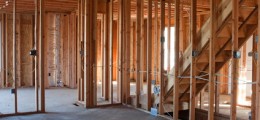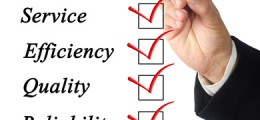Safety and first impressions are two of the most important ingredients for success in the business world. In addition to projecting a positive image for your business, clean and well-maintained floors prevent injuries and can save you thousands of dollars in medical expenses and legal fees.
 More than 50% of all serious injuries in public buildings are caused by slips and trips that occur because floors are grimy, muddy, wet or gritty. It only takes one small spot of grit or moisture to cause a serious fall. The Occupiers Liability Act of 1957 places a legal obligation on the company or business in control of a shop, recreational area or office to ensure that floors are “reasonably safe” for people entering the premises. A person suffering a fall is entitled to make an accident compensation claim if they slip or trip on an unsafe floor.
More than 50% of all serious injuries in public buildings are caused by slips and trips that occur because floors are grimy, muddy, wet or gritty. It only takes one small spot of grit or moisture to cause a serious fall. The Occupiers Liability Act of 1957 places a legal obligation on the company or business in control of a shop, recreational area or office to ensure that floors are “reasonably safe” for people entering the premises. A person suffering a fall is entitled to make an accident compensation claim if they slip or trip on an unsafe floor.
National Safety Institute statistics show that the slips and falls cost companies approximately $22,800 per incident. Workers Compensation claims are about $19,000 per accident. These numbers account for medical costs alone and don’t include punitive damages for negligence or fines from regulating agencies. If a building occupant or visitor has an accident there is no actual limit to the medical or legal fees that a company could incur.
That’s why it makes sense to hire a professional cleaning company to keep your business safe and clean. The few dollars it costs to maintain clean floors could save you significant amounts of money by keeping your employees and customers safe. It’s one of the most important investments you can make.
Commercial cleaning companies have trained professionals who understand how to properly clean floors so that the risk of falls can be greatly reduced. These professionals know which products to use so that floors are clean and shiny, but also safe.
The Occupational Health And Safety Administration provides several guidelines for professional cleaning companies and others who are responsible for floor maintenance. The guidelines include:
• Keep floors clean and dry. In addition to being a slip hazard, continually wet surfaces promote the growth of mold, fungi and bacteria that can cause infections.
• Provide warning signs for wet floor areas.
• Keep aisles and passageways clean and in good repair.
• Ensure spills are reported and cleaned up immediately.
• Use prudent housekeeping procedures such as cleaning only one side of a passageway at a tie.
Clean floors are also more appealing to your clientele. Floors are one of the first things people notice and they are more likely to play a return visit to a store or office where the surfaces glisten and gleam. In today’s competitive environment consumers have many choices of places to do business and they are naturally drawn to the ones that maintain a good appearance.
Bear in mind that walking surfaces don’t start when people enter the door. It’s important that storefront walkways, such as sidewalks, are also clean and free of hazards. Many businesses spend considerable amounts of time and money keeping their inside areas clean but neglect to provide a safe, welcoming storefront.
References:
Nation Safety Council
Occupational Health and Safety Administration (OSHA)



Leave a Reply